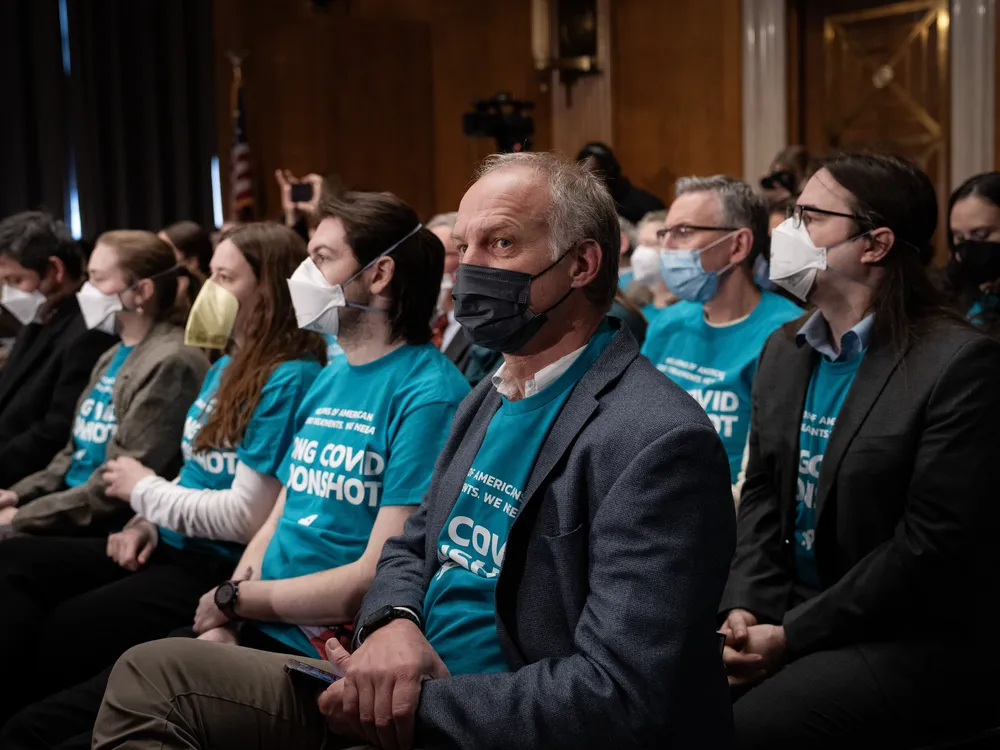Scientists Find Indicators in Blood Linked to Long Covid, Hinting at Future Treatments
One part of the immune system appeared to be overly active in long Covid patients in a small study, a finding researchers hope could help diagnose or treat the condition

Researchers have found signatures in the blood of people suffering from long Covid, which might point the way to treatments for the condition. In a small study, participants with long Covid symptoms showed different levels of certain proteins compared to people who had recovered from Covid-19 or those who had not been infected.
These changes were tied to an increased activation of the complement system, a part of the immune system, the researchers wrote Friday in the journal Science. Complement system proteins work alongside antibodies, surveilling the bloodstream for infections.
The findings could potentially help physicians diagnose long Covid by looking for differences in complement protein activity. And down the line, the research “will hopefully pave the way for further studies to try and develop therapies for what is, at the moment, pretty much an impossible thing to treat,” Aran Singanayagam, a respiratory physician at Imperial College London who did not contribute to the findings, tells Nature News’ Miryam Naddaf.
Still, the findings will need to be validated with larger studies that test patients farther along in their illness, the authors note.
Long Covid is defined by the Centers for Disease Control and Prevention (CDC) as effects that persist or appear four or more weeks after first becoming infected with the virus that causes Covid-19. At least 65 million people globally are thought to have long Covid, per a January 2023 study, and it has been tied to more than 200 symptoms that vary widely, including fatigue, shortness of breath, chest pain, headaches, brain fog, depression or anxiety, sleep problems, diarrhea, rashes and joint or muscle pain.
While long Covid most commonly develops in people who have had a severe case of Covid-19, anyone infected with the virus can develop the condition, per the CDC. People who are not vaccinated may also have a higher risk of facing lingering symptoms.
Scientists are unsure what exactly causes long Covid, and doctors have no specific treatment for it, according to the National Institutes of Health (NIH). But scientists have theorized that “tissue damage, viral reservoirs, autoimmunity and persistent inflammation” could drive the condition, the study authors write.
For the study, the researchers followed 39 people without Covid-19 and 113 people with Covid-19. After six months, 40 of the infected patients had developed long Covid. The researchers took 268 blood samples from participants and measured more than 6,500 proteins.
Patients with long Covid showed increased activation of the complement system, which targets pathogens and damaged cells. When it’s too active, this system can also damage healthy cells, writes Stat News’ Elizabeth Cooney. This heightened activity appeared when the long Covid patients were first infected, as well as during a follow-up after six months.
Other recent research, which has yet to be peer reviewed, also found a link between the complement system and long Covid, according to MIT Technology Review’s Cassandra Willyard.
In the new study, patients with long Covid had lower levels of a protein that helps prevent blood clots and higher levels of proteins tied to clot formation, writes Nature News.
While other studies have found blood clotting and tissue damage in long Covid patients, “this research gets at the molecular mechanism of how that might be initiated,” Akiko Iwasaki, an immunologist at Yale University who did not contribute to the findings, tells NBC News’ Barbara Mantel.
Carlo Cervia-Hasler, a co-author of the study and a physician and researcher at the University of Zurich in Switzerland, tells Stat News that he hopes researchers could use these complement system signals to diagnose long Covid.
However, to truly determine whether these blood signatures can help with diagnosis “will require validation in larger cohorts,” Nadia Roan, who studies long Covid at the University of California, San Francisco, and was not involved in the research, says to Stat News. “And it is unlikely that a single biomarker can be used to diagnose long Covid given the heterogeneity of the condition.”
Additionally, scientists still have work to do to determine what exactly is causing people to get long Covid.
“We are at the beginning of the exploration of this emerging field,” Lisa Chakrabarti, an immunovirologist at the Pasteur Institute in France who was not involved in the research, tells Nature News.
“The fundamental issue that we have with long Covid research right now is that we have a lot of associations, but we don’t have a lot of causations that have been proven,” Timothy Henrich, an immunologist at the University of California, San Francisco, who did not contribute to the findings, tells MIT Technology Review.

